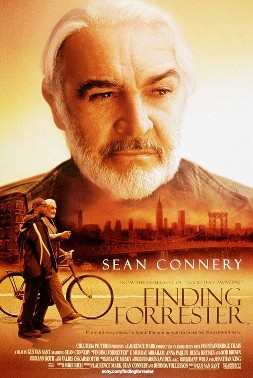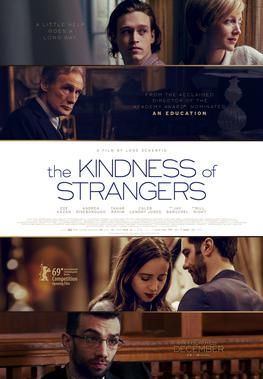American Vibes
I’ve seen some good movies in 2021. Two of the best discoveries have come from previous years.
Finding Forrester (2000) and The Kindness of Strangers (2019) though very different movies, share a sense of rhythm. A relaxed pace from the characters, who seem at ease just being there without fuss, letting the story flow. These are not watching-the-grass-grow kind of movies. A lot happens in them, but they breathe. Movies of this kind don’t earn awards for their actors.

Finding Forrester image from wikipedia

Kindness of Strangers image from wikipedia
I find them especially American. Even if
The Kindness of Strangers is directed by a Dane and the leading man is French-Algerian
and two English actors play central roles.
The kind of Americanness these two movies exude has to do with the cool of their characters. An unassuming
style that is confident at the same time.
The characters don’t do anything particular to win you over or to be memorable. They trust that you
will get to like them. This is an American archetype of sorts.
Finding Forrester gives basketball a prominent role. Basketball, with its elastic slouchiness, is also something I associate with America. The protagonist of Forrester, teenager Jamal, is a gifted player and a gifted student. The whole movie he remains reserved, though not opaque.
An additional characteristic of this kind of American archetype is stoicism. Jamal faces expulsion from
school and possible public humiliation at a student show. He still shows up for it, takes a seat
and waits quietly.
Clara, the main character of Kindness, faces the terror that her violent husband could
take her children away from her. She does the best she can. At one point she is depleted.
Still she does not make a big scene. She gets a lawyer and accepts help from new friends.
Alice, another character in crisis, concentrates on her volunteer work after quitting her job. And
keeps herself going.
This sort of American stoicism is different from the English kind. Compare Steve McQueen’s Cooler King from The Great Escape to Alec Guiness’s colonel Nicholson from The Bridge on the River Kwai, or to Anthony Hopkins pretty much anywhere. That famous stiff upper lip is so ostentatious compared to the American brand of unassuming grit and pragmatism.
The characters in this archetype show a relative scarcity of features.
It’s hard to describe Jamal, from Forrester, or Marc or Clara from Kindness. Aside from seeming
like good people, you need to see them in action to get them.
They don’t utter memorable quotes; that is not their purpose.
This is perhaps the most powerful bit of the archetype. Drawing the characters loosely
makes them easier to identify with.
In Understanding Comics, Scott McCloud speculates about the appeal of comic books. He
writes that the condensed and relatively featureless drawings allow us to relate to them.
It’s much easier to feel represented by a stick figure you share some characteristic with than by a
fully detailed Velázquez painting.
There are many other American archetypes, and this is not exclusively an American one.
It’s just that this archetype is well used and has good practitioners in American
cinema. And so, in 2021 we have Cry Macho where Clint Eastwood plays a character that is kind,
pragmatic, stoic, and doesn’t say all too much.
It takes gumption and know-how to make leading characters so simple.